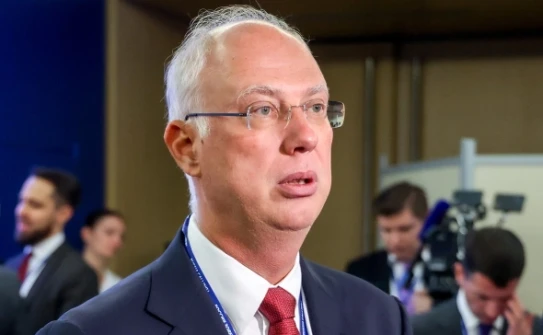COP refers to the United Nations’ annual conference on climate change. Its 29th meeting, COP29, is scheduled to begin November 11, 2024, in Baku, Azerbaijan.
COP is an annual meeting where member states of the United Nations convene to assess progress in dealing with climate change and make a plan for climate action within the guidelines of the UNFCCC. (The formal name for the meetings is the Conference of the Parties of the UN Framework Convention on Climate Change, or the United Nations Climate Change Conference.) The first COP was held in Berlin in 1995. Last year’s COP28 was held in Dubai.
COP decisions indicate a level of global consensus. That’s because in the UN system, large and powerful countries like the United States and Russia have the same voting rights as tiny island nations like Vanuatu or São Tomé and Príncipe. Plus, decisions are made only by consensus. UN member states send representatives to participate in the negotiations. Observer organizations also send delegates, and industry representatives and lobbyists attend as well. But before we dive any further into COP—including its triumphs and challenges and what to expect from this year’s conference—let’s provide some background.
What is a 1.5° pathway?
Since the Industrial Revolution, the average global surface temperature has risen by about 1.2°C. Most scientists agree that an increase of 1.5°C is the threshold beyond which the effects of climate change would be the most dangerous and irreversible. A 1.5° pathway is a plan to keep the average global temperature increase below that level. At COP26, in 2021, governments agreed to focus on a 1.5° pathway rather than the less stringent 2° pathway established under the Paris Agreement in 2015. To limit global warming to 1.5°C, every part of the global economy would need to rapidly decarbonize. Many companies, countries, and organizations have pledged to decarbonize, or make the net-zero transition, in the coming years.
What are the Kyoto Protocol and the Paris Agreement?
The Kyoto Protocol, ratified in 1997, was a landmark international treaty in which signatories agreed to reduce greenhouse gas emissions to prevent human interference with the natural climate. The treaty, a result of COP3, was one of the most significant results of the COP meetings. In 2012, the agreement was extended to 2020.
The Paris Agreement, also known as the Paris Climate Accords, is an international treaty negotiated in 2015 at COP21. In Paris, participants agreed to limit the increase of global temperatures to 2°C while pursuing efforts to stay within 1.5°C. According to the agreement, each country must track, record, and report its carbon emissions and its efforts to reduce and offset them.
What happened at the last COP?
COP28, held in Dubai in 2023, was a significant moment. McKinsey delegates in attendance at COP28 reported progress toward decarbonization. But much more ambition is needed to limit warming to 1.5°C.
Delegates to COP28 made pledges on behalf of member countries: full delivery of the energy-related pledges made at COP28 would result in global greenhouse gas emissions in 2030 being about four metric gigatons less than would be expected without the pledges.
There are two challenges here. First, member states need to convert pledges to measurable action in order to achieve their goals. Also, four metric gigatons is nowhere near enough to limit warming to 1.5°C; reductions totaling 22 gigatons are needed to achieve this goal.
COP28 concluded with what’s become known as the UAE Consensus. Part of this agreement included the goal of “transitioning away from all fossil fuels in energy systems, in a just, orderly, and equitable manner, in this critical decade to enable the world to reach net-zero emissions by 2050, in keeping with the science.” This sentence is notable because it’s the first time the phrase “fossil fuels” has been mentioned in a COP agreement. The agreement was nonbinding, and 19 countries have committed to fund an agreement to mitigate climate loss and damage, with $792 million pledged.
COP28 featured the first global stocktake, which provided a comprehensive assessment of progress since the Paris Agreement. The objective of the stocktake is to align efforts on climate action, including measures to bridge the gaps in progress.
What were the key takeaways from COP28?
Based on our conversations with executives, government leaders, and official delegates at COP28, here are ten key takeaways for leaders to help accelerate progress toward a net-zero transition and achieve energy sustainability:
Net zero remains an organizing principle for private sector leaders, almost all of whom recognize the need to accelerate climate action.
The world will need to run two energy systems in parallel, rapidly scaling up the net- zero/low-carbon one . . .
. . . while also decarbonizing the existing energy system.
Methane is a critical focus of emission reduction efforts. The next step is to convert this focus into measurable action.
The finance system is integrating net zero with new financing commitments and mechanisms, but a $41 trillion funding gap remains.
The technologies needed to achieve net-zero emissions are available. The challenge is to accelerate deployment, including by building new green businesses.
Heavy-emissions sectors, such as energy, transport, and industry, are deploying capital and accelerating their path to decarbonization.
Action on climate alone is insufficient without also addressing nature and other planetary boundaries.
Adaptation is now a critical ingredient in climate action, with countries and companies starting to take action on health, water, food, and nature.
There are steps leaders can take to accelerate progress and create value in the net-zero transition. One action is to power up climate technologies and hyperscale new green businesses, creating innovations that can help make the transition more affordable.
What to expect at COP30?
COP30 will take place in November 2025 in Belém, Brazil.


